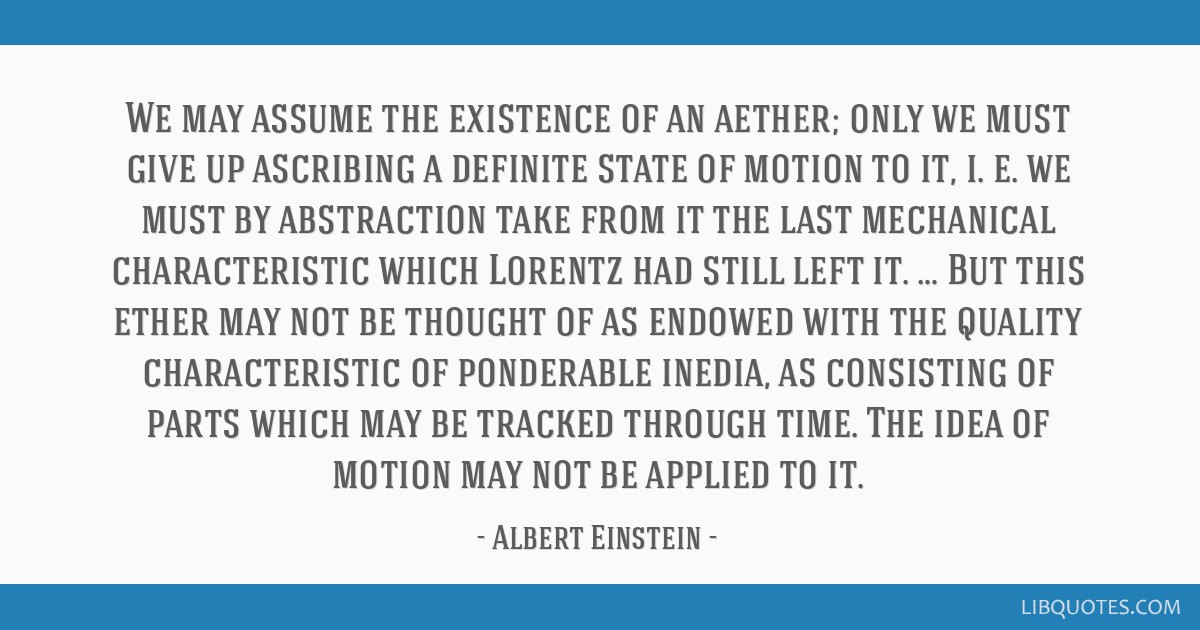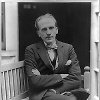We may assume the existence of an aether; only we must give up ascribing a definite state of motion to it, i. e. we must by abstraction take from it the last mechanical characteristic which Lorentz had still left it. … But this ether may not be thought of as endowed with the quality characteristic of ponderable inedia, as consisting of parts which may be tracked through time. The idea of motion may not be applied to it.
On the irrelevance of the luminiferous aether hypothesis to physical measurements, in an address at the University of Leiden (5 May 1920)























